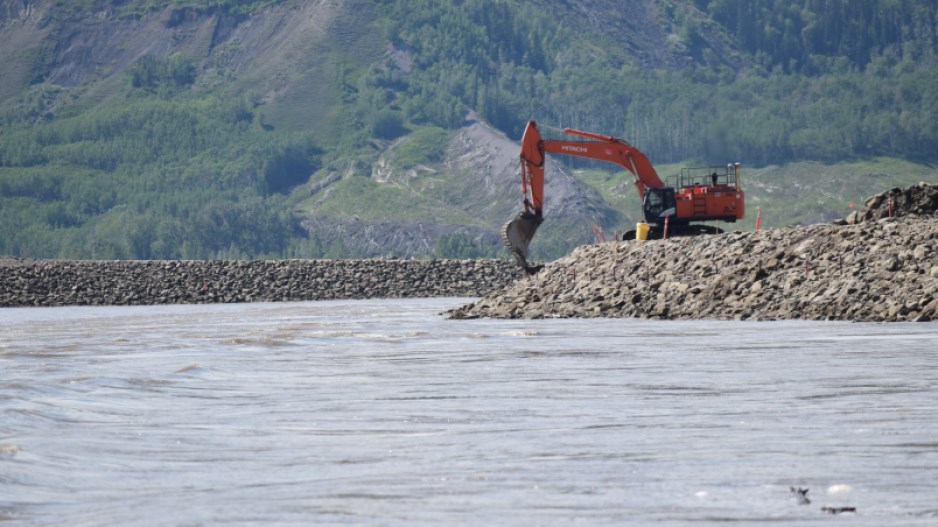A “renewed relationship” with Indigenous Peoples and “science-based” decision-making were some of the campaign promises by Justin Trudeau’s Liberals before they were swept into power last October.
According to a letter from the Liberal fisheries minister tucked away in a regional district agenda package, the Site C dam meets both those commitments.
“In keeping with our commitment to science-based decision-making, the process leading up to the regulatory authorization (for Site C) was thorough and included science analysis and extensive consultations with Indigenous groups and key stakeholders,” Fisheries Minister Dominic LeBlanc wrote, in response to a letter from Peace River Regional District director Karen Goodings.
As for First Nations, two of which are fighting Site C in the courts: “As you may know, this government is committed to a renewed relationship with Indigenous peoples,” LeBlanc wrote.
“In keeping with this commitment and in an effort to ensure that continued, meaningful engagement and information-sharing continues with First Nations potentially affected by the Site C project, the authorization also requires BC Hydro to take additional actions to enable and fund continued dialogue with, and involvement of, these groups as the project advances.”
The letter is another wrinkle in the Liberal government’s support for Site C, an $8.8 billion hydroelectric project which would flood 83 kilometres of the Peace River Valley.
While the project was initially approved under the previous Conservative government, the Liberals approved water and fisheries permits needed for the project to continue this summer.
Goodings, director for the rural area north of Fort St. John, wrote to LeBlanc in June asking him to hold off on any new permits until the project could be reviewed by the B.C. Utilities Commission.
She said the independent commission scrutinize review the need for electricity from the project, which she said threatens First Nations food sources and Treaty rights, as well as farmland.
“I respectfully request that no further permits be issued until an independent study has been undertaken,” Goodings wrote. “Better to make sure of the facts, than try to live with the results of a hurried decision.”
With the House of Commons reconvening for its fall session, the Liberals have taken flak for their continued support for Site C.
Much of that has been directed at Justice Minister Jody Wilson-Raybould, who as a regional chief with the Assembly of First Nations said Site C violated Treaty rights.
Unlike LeBlanc, who said the dam was in keeping with his party’s campaign commitments, Wilson-Raybould blamed the previous government for the decision to approve Site C when asked about the project by the Aboriginal Peoples Television Network.
“I acknowledge that this is a contentious issue,” she told APTN. “To be clear, this was a decision by a previous government, and we have been handed a number of decisions where we would have done things differently.”
West Moberly First Nation Chief Roland Willson has since said Wilson-Raybould should either speak up for Indigenous people opposed to the project or resign.
There is also disagreement on whether Site C meets the Liberals’ pledge for “science-based” decision-making.
Critics of the project say the government has not proven a need for Site C, and failed to investigate alternative sources of power. In May, 200 members of the Royal Society of Canada asked Trudeau to put the brakes on the project, saying it “goes against the Canadian government emphasis on evidence-based decision-making and how it must shape and inform government action.”
In an August news release, BC Hydro said Site C is the “most studied project” in its history—citing an environmental impact statement running nearly 30,000 pages.




